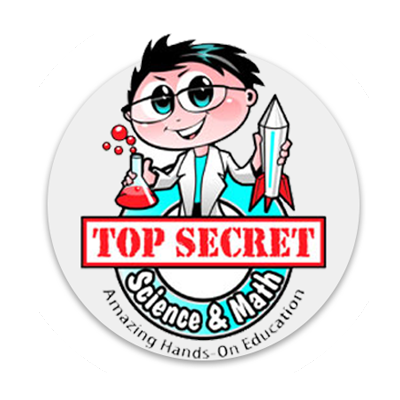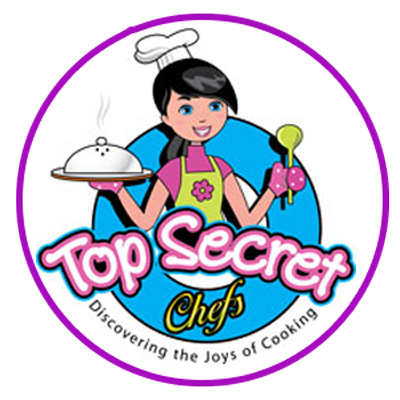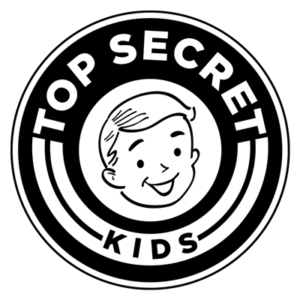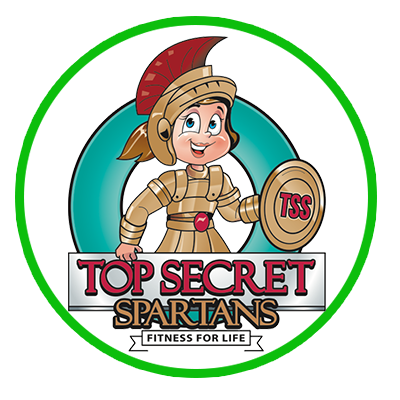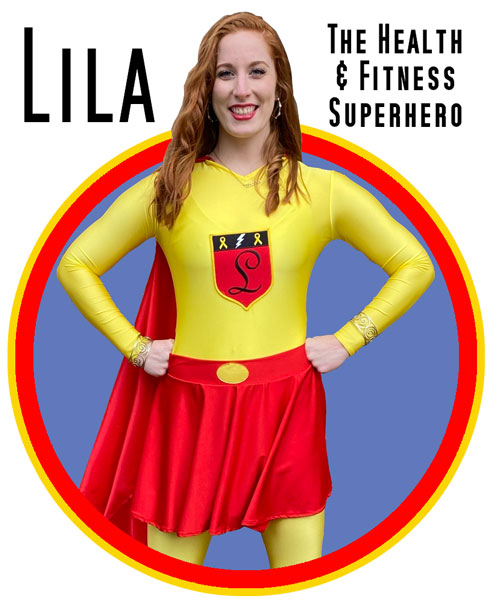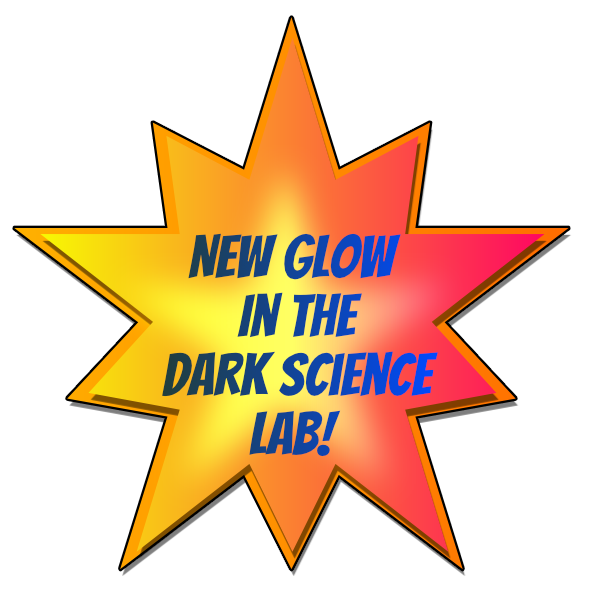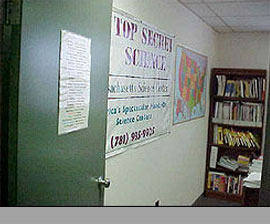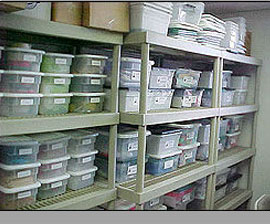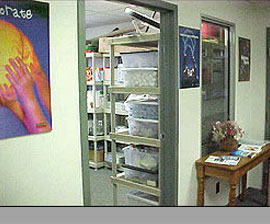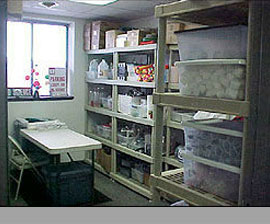BIG NEWS!! On September 1st 2012 Michael worked hands-on with his 1,000,000th student!
The votes are in. Michael Bergen is America’s most loved weird scientist. He has personally worked hands-on with more than 1 million children over the past 20 years. Mr. Bergen is a wonderful educator, entertainer and motivator that gets both kids and adults to enjoy science through engaging participation. He is the published author of several books including “300 Fun & Exciting Science Experiments,” and his science training video series “YOU CAN Teach Hands-On Science!” is the benchmark for teachers around the world. Mr. Bergen is the director of Top Secret Science & Math, an international education consulting organization that has taught science and math to over 40 million children through 350 affiliates in 20 countries.
The Massachusetts Science Center Corporation was organized in 1995 as a 501(c) (3) charitable nonprofit organization. We are part of a national online database of U.S. charitable organizations called GuideStar.org. This website gathers and distributes data–including financial information, programs and activities, volunteers and boards of directors–on more than 850,000 IRS-recognized nonprofits. Please visit GuideStar for more information about the MSCC.
From 1995 – 1999 we used the name Weird Science to identify us as a new and fun educational science center. In 1999 we changed our Weird Science name to Top Secret Science & Math. In 2000 we added a link to our website that allowed children to receive help with their science homework. This program grew from a few inquiries each month into hundreds of emails a month from children all over the world. Also in 2000, we started our consulting division that provides teachers a wonderful opportunity to offer science education and entertainment in their local areas. Today, we have 350 affiliates in over 20 countries. We offer numerous low cost and high value opportunities to support our mission of providing fantastic hands-on science and math programs to children of all ages. Overall, we work with over 1,000 local children in the Boston area each week.
Invent, engineer, explore, fly, wonder, dream…
Over the past 20 years we’ve introduced hands-on science to more children than any other organization in America (that’s over 40 million children worldwide). We have created over 6,000 successful school and group programs and helped celebrate over 5,000 birthday parties. We’d like you to experience a fantastic and incredible new way in learning and having fun…lt’s totally COOL!!!
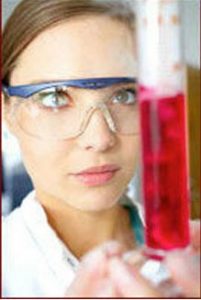
OUR VISION
Science is a fascinating adventure of fantastic discoveries and imaginative investigation that affects us every day. Unfortunately, science is not viewed as a priority at a young age which means that a child’s natural curiosity can diminish, and over time they can lose interest. But, science is essential to understanding the complexities and opportunities of everyday life. Our vision is to instill a very high level of enthusiasm and inquisitiveness about science and high technology. This will excite children to learn at any early age by opening their minds and increasing their interest to further learning in the future. At Top Secret Science & Math we offer a wonderful environment where your child can build a science foundation that will open the doors to a lifetime of learning.
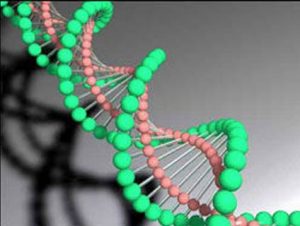
BENEFITS
- A welcome additive to your school’s current science curriculum
- Wide variety of fascinating science topics in an interactive environment
- Small Classes
- A safe, comfortable environment
- Trained professionals with many years of teaching and coaching experience with children
- Private facilities and rooms
- All materials and supplies provided
- Our programs exceed National Science Standards
- Children can learn a wide range of science process, critical thinking and scientific reasoning skills
Science Process Skills
| Skills | Description |
|---|---|
| Observing | Determining the properties of an object or event by using the senses |
| Classifying | Grouping objects or events according to their properties |
| Measuring/Using Numbers | Estimating, describing quantitatively using appropriate units of measurement, recording quantitative data, space or time relationships |
| Communicating | Using written and spoken words, graphs, tables, diagrams, and other information Presentations, including those that are technology based |
| Inferring | Drawing a conclusion about a specific even based on observations and data: may include cause and effect relationships |
| Predicting | Anticipating consequences of a new or changed situation using past experiences and observation |
| Collecting, Recording And Interpreting Data | Manipulating data, either collected by self or by others, in order to make meaningful information and then finding patterns in that information that lead to making inferences, predictions and hypotheses |
| Identifying and Controlling Variables | Identifying the variable in a situation: selecting variables to be manipulated and held constant |
| Defining Operationally | Defining terms within the context of one’s own experiences; stating a definition in terms of “what you do” and “what you observe” |
| Making Hypotheses | Proposing an explanation based on observations |
| Experimenting | Investigating, manipulating materials, and testing hypotheses to determine a result |
| Making and Using Models | Representing the “real world” using a physical or mental model in order to understand the larger process or phenomenon |
Critical Thinking Skills
| Skills | Description |
|---|---|
| Analyzing | Studying something to identify constituent elements or relationships among elements |
| Synthesizing | Used deductive reasoning to pull together key elements |
| Evaluating | Reviewing and responding critically to materials, procedures, or ideas, and judging them by purposes, standards, or other criteria |
| Applying | Using ideas, process, or skills in new situations |
| Generating Ideas | Expressing thoughts that reveal originality, speculation, imagination, a personal perspective, flexibility in thinking, invention or creativity |
| Expressing Ideas | Presenting ideas clearly and in logical order while using language that is appropriate for the audience and occasion |
| Solving Problems | Using critical thinking skills to find solutions |
Scientific Reasoning Skills
| Skills | Description |
|---|---|
| Longing to Know And Understand | Determining the properties of an object or event by using the senses |
| Questioning of Scientific Assumptions | The tendency to hold open ideas, encounters and assumptions for further verification |
| Search for Data and Its Meaning | The propensity to collect information and to analyze it in context |
| Demand for Verification | The inclination to repeat and replicate findings and studies |
| Respect For Logic | The inclination to move from assumption to testing and data collection to collections |
| Consideration of The Premises | tendency to put into context the reason for a particular point of view |
| Consideration of Consequences | The tendency to put into perspective the results of a particular point of view |
| Respect for Historical Contributions | The inclination to understand and learn from earlier ideas, studies and events |
